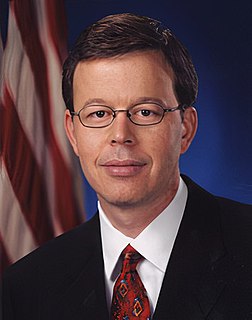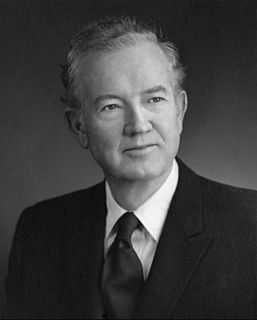A Quote by William Barr
When a federal court issues an order against enforcement of a government policy, the ruling traditionally applies only to the plaintiff in that case.
Quote Topics
Related Quotes
The federal court has not commented on niqab as being a violation of any putative Charter right, but rather has said that the court believes that the policy ought to be anchored in legislation or regulation as opposed to an administrative order from the Minister. We disagree with that. But this is not a Charter ruling.
Gorsuch, who is a U.S. Supreme Court nominee in the United States, said the real test of law is when a government can lose in its own courts and still respect the order. And I think Canadian need to ask is why would Canada, if it's doing everything right, why wouldn't you want to be watched? If they are contesting the fact that their own courts don't have jurisdiction over the government's human rights violations, then our next step is to go to federal court and find the federal government that can come to court and we will do that.
I think it's a typical hidden agenda of the Liberal party... They had the courts do it for them, they put the judges in they wanted, then they failed to appeal -- failed to fight the case in court... I think the federal government deliberately lost this case in court and got the change to the law done through the back door.
How can you raise the level of consciousness on this? How can you get the federal government to take the responsibility? Florida does not have a foreign policy. This is a federal policy or absence of federal policy. It's so clear that we're not being treated fairly. We have to come up with a solution. It hurts your head trying to figure out what to do.
If the court strikes down the Defense of Marriage Act, is that a 'liberal' result enabling gay couples married in states where gay marriage is legal to enjoy the same economic advantages that federal laws now grant to straight couples? Or is it a 'conservative' ruling, limiting the federal government's ability to override state power?
The Community Relations Service would be another pro-civil rights Federal agency attempting to make people do what the policy of the Federal Government demanded that they do. Moreover, in title II of the bill, this Service is made an agent of the court without due thought as to the effect on legal and judicial procedures.
The Second Amendment, like the rest of the Bill of Rights, was meant to inhibit only the federal government, not the states. The framers, as The Federalist Papers attest (see No. 28), saw the state militias as forces that might be summoned into action against the federal government itself, if it became tyrannical.




































